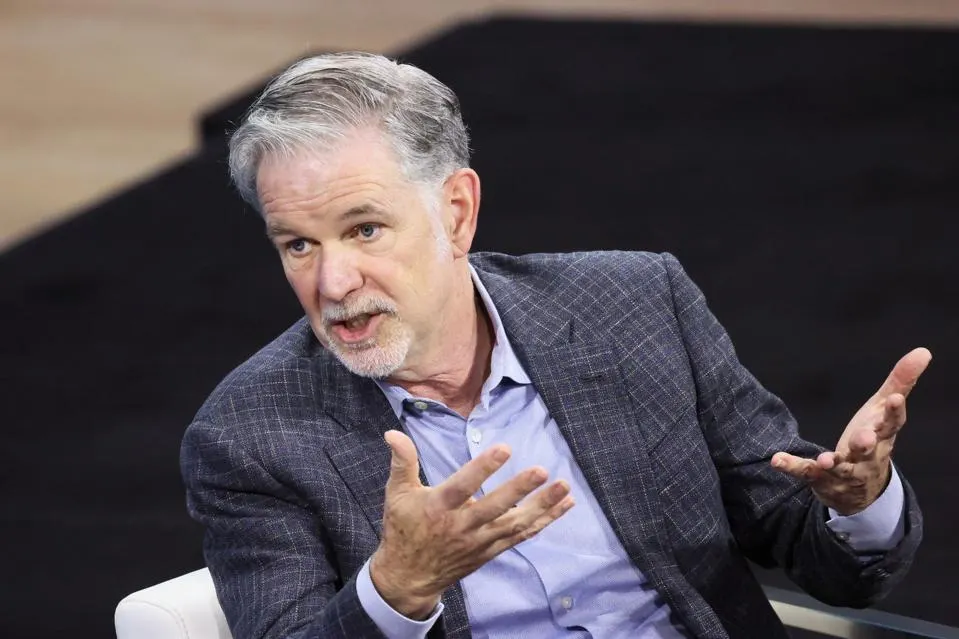Netflix co-founder Reed Hastings has made a landmark $50 million donation to Bowdoin College, marking the largest gift in the institution’s history. The funds will be used to launch the Hastings Initiative for AI and Humanity, an ambitious effort to explore the intersection of artificial intelligence and society. This move positions Bowdoin College at the forefront of AI ethics and education, signaling a broader trend of integrating AI studies into liberal arts programs.
Table of Contents
Toggle
Context: AI’s Growing Role in Higher Education
The rapid advancement of AI is reshaping industries and raising ethical concerns worldwide. Academic institutions are stepping up to address AI’s societal implications, with universities like MIT, Stanford, and Harvard launching AI research initiatives. Hastings’ contribution to Bowdoin aligns with this trend, ensuring that future leaders are prepared for an AI-driven world.
The Hastings Initiative for AI and Humanity
Key Objectives:
- Faculty Expansion – Hiring 10 new faculty members across disciplines to study AI’s impact on various fields, from economics to philosophy.
- Research & Curriculum Development – Supporting existing faculty to integrate AI into coursework and interdisciplinary studies.
- Student Engagement – Funding AI-focused research projects, workshops, and symposia to foster discourse on AI’s ethical and societal implications.
- Public Discourse & Policy Influence – Creating forums to connect AI scholars, policymakers, and industry leaders to shape ethical AI frameworks.
Bowdoin’s Strategic AI Investments
This initiative builds on Bowdoin’s recent AI-focused efforts. In 2024, the college secured a major grant from the Davis Educational Foundation to support AI teaching and research. The Hastings Initiative further solidifies Bowdoin’s commitment to preparing students for AI’s transformative impact on society.
Comparing Bowdoin’s Approach to Other Institutions
Bowdoin joins a growing list of institutions investing heavily in AI ethics and education:
- MIT’s Schwarzman College of Computing ($1B investment in AI and computing research)
- Stanford’s Human-Centered AI Institute (focused on AI’s impact on humanity)
- Harvard’s Berkman Klein Center (AI policy and governance research)
While MIT and Stanford emphasize technical AI research, Bowdoin’s initiative distinguishes itself with a strong focus on liberal arts education, positioning AI within broader ethical and societal contexts.
Industry and Consumer Perspectives
Hastings’ donation signals that AI’s impact isn’t limited to tech companies—it’s becoming a societal issue. Major corporations like Google, Microsoft, and OpenAI are investing billions in AI research, but skepticism remains among consumers and policymakers about its ethical implications.
Recent studies suggest:
- 72% of Americans worry about AI replacing jobs (Pew Research, 2024).
- Only 32% of employees trust AI in the workplace (Deloitte AI Trust Report, 2024).
- Global AI regulation efforts are increasing, with the EU AI Act setting stringent guidelines on AI deployment.
Bowdoin’s initiative seeks to bridge these gaps by fostering an informed, ethical approach to AI development.
Controversies & Ethical Considerations
The integration of AI into education has sparked debate:
- Bias in AI models – How will the initiative address fairness and discrimination in AI systems?
- Privacy concerns – AI’s use in data collection and surveillance remains a contentious issue.
- Job displacement fears – How will institutions like Bowdoin prepare students for an AI-driven workforce?
Bowdoin’s interdisciplinary approach may offer solutions by combining ethical philosophy with technical AI studies, creating well-rounded AI policymakers and developers.
Future Implications & What’s Next
Hastings’ donation could set a precedent for other philanthropists to invest in AI education at liberal arts institutions. As AI becomes more integrated into daily life, initiatives like this will play a crucial role in shaping AI governance and responsible innovation.
Predictions:
- Expansion of AI Ethics Programs – More universities will develop AI-focused curricula.
- Greater Collaboration Between Academia and Industry – Partnerships with tech giants could fund further research.
- Regulatory Influence – Bowdoin’s initiative may contribute to shaping AI policies at the national and global levels.
Conclusion
Reed Hastings’ historic $50M donation to Bowdoin College is more than a philanthropic gesture—it’s a strategic investment in the future of AI and humanity. As AI’s influence grows, interdisciplinary approaches like the Hastings Initiative will be crucial in ensuring that AI serves society ethically and responsibly. This initiative cements Bowdoin’s place as a leader in the ongoing dialogue about AI’s role in our world.




